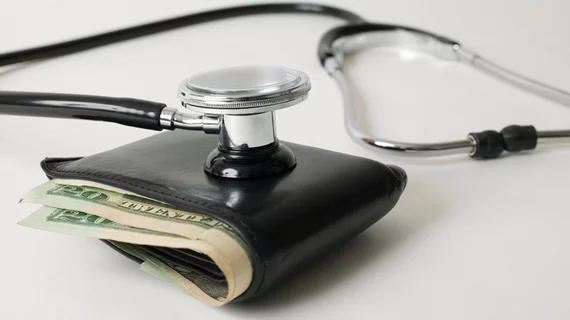US healthcare spending grew 4.6% in 2018
National healthcare expenditures rose 4.6% in 2018, according to new figures from the CMS Office of Actuary. That’s below the national 5.4% GDP growth for 2018. However, expenditures rose faster for Medicare, Medicaid, private health insurance and out-of-pocket spending in 2018 than in 2017.
In addition, the share of the economy devoted to healthcare spending dropped from 17.9% in 2017 to 17.7% in 2018, according to CMS’s study.
The agency also said growth in healthcare spending slowed slightly from 2016 to 2018, averaging 4.5%, compared to 5.5.% from 2014 to 2015, largely as a result of expanded Medicaid and private healthcare insurance and increased spending on prescription drugs. However, the rate of national healthcare expenditures was higher in 2018 than in 2017, reaching $3.6 trillion in 2018, or $11,172 per person.
2018 also saw faster growth in Medicare, Medicaid and private insurance, thanks to the reinstatement of the health insurance tax applied to private insurance, Medicare Advantage and Medicaid Managed care plans, CMS noted.
Specifically, private healthcare insurance (34% of healthcare expenditures) spending increased 5.8% to $1.2 trillion in 2018––faster than the 4.9% growth in 2017. Medicare spending (21% share of expenditures) also rose faster, at 6.4% growth to $750.2 billion in 2018. That’s compared to 4.2% growth in 2017. Medicaid spending (16% of healthcare spending) increased 3% to $597.4 billion, faster than the 2.6% in 2017. Finally, out-of-pocket spending, (10% share of healthcare expenditures) grew 2.8% to $375.6 billion in 2018, faster than the 2.2% recorded in 2017.
Across the three largest goods and service categories––hospital care, physician and clinical services, and retail prescription drugs––spending was faster and slower in 2018 than 2017. Hospital care spending growth was about the same in 2017 and 2018, increasing 4.5% in 2018 to $1.2 trillion. Physician and clinical services spending increased 4.1% to $725.6 billion last year, slower than the 4.7% reported in 2017. Retail prescription drug spending grew 2.5% to $335 billion after slower growth of 1.4% in 2017.
See the full healthcare expenditures report here.

